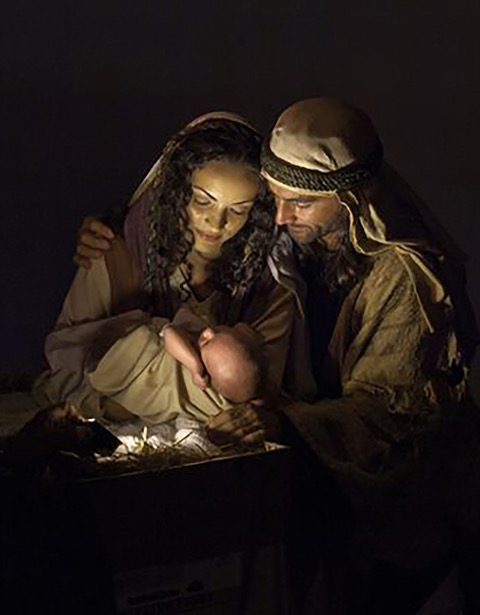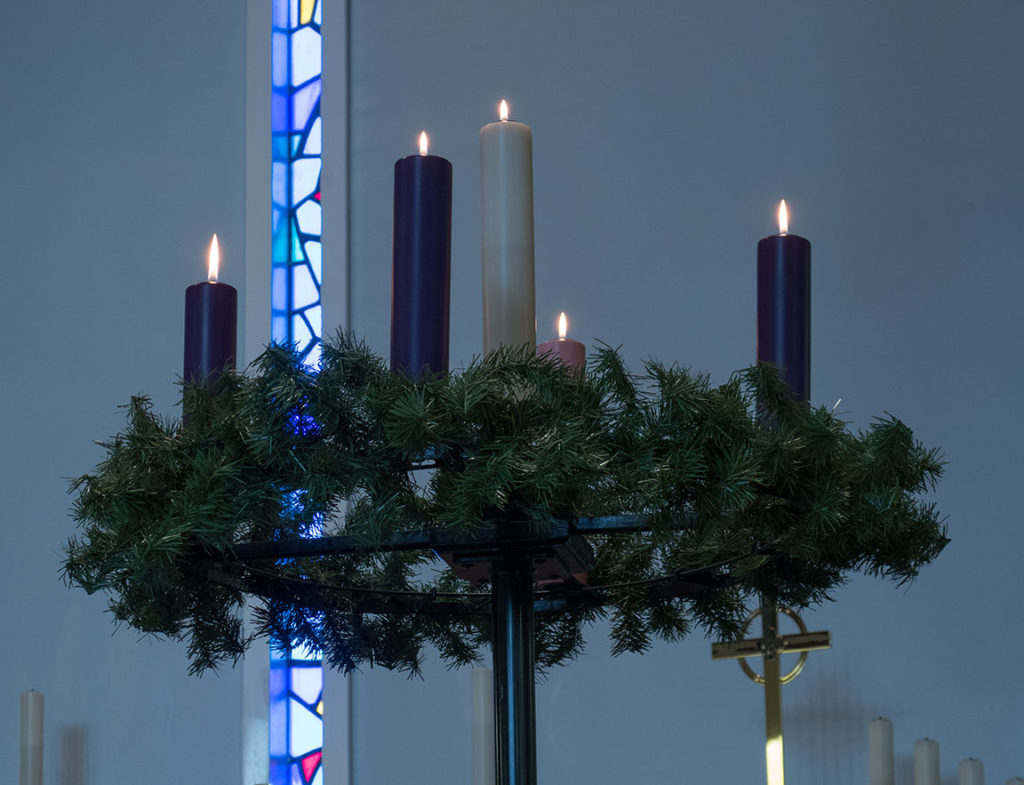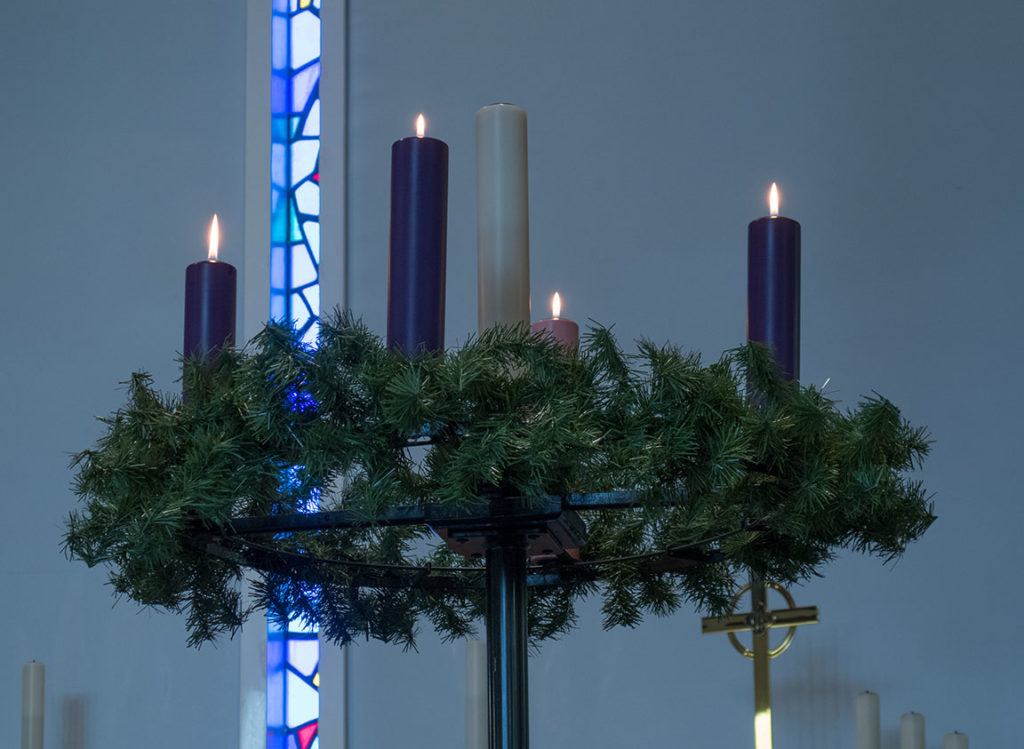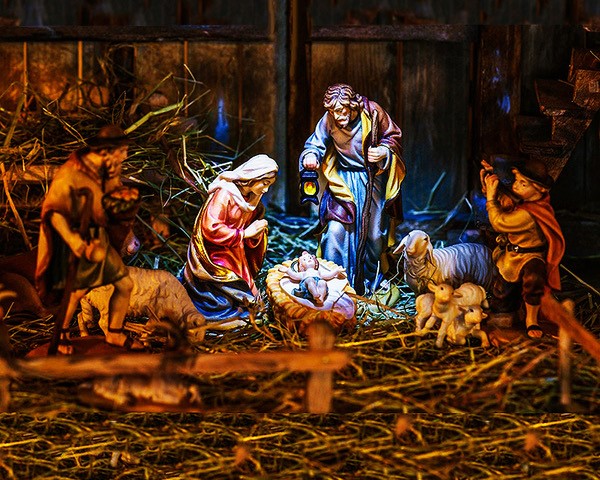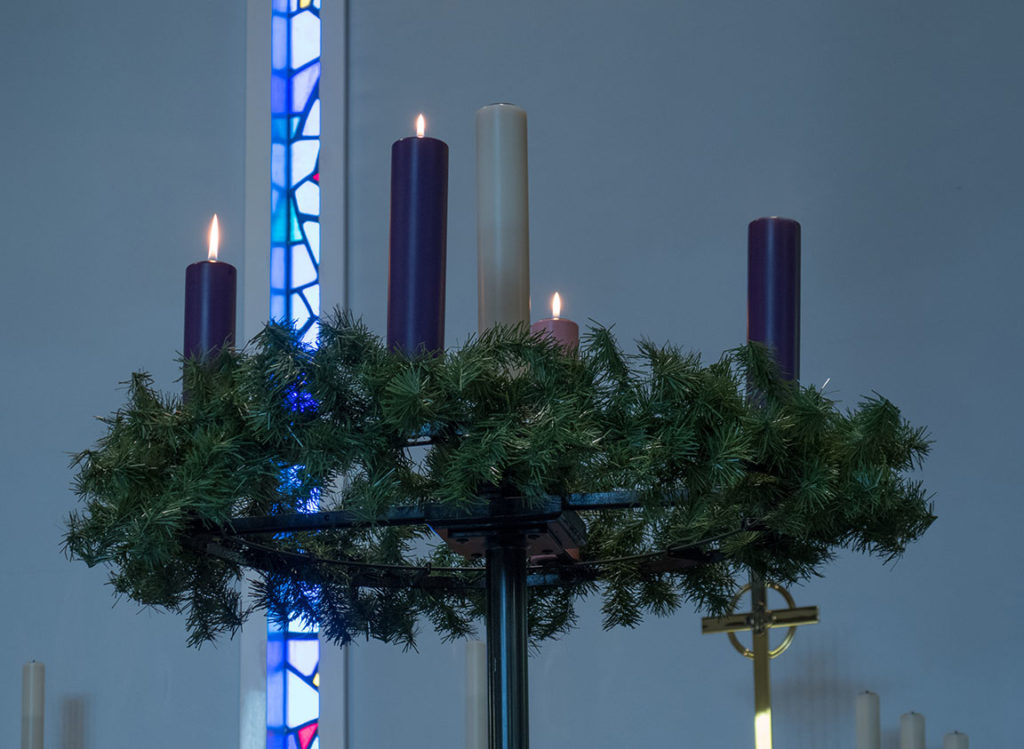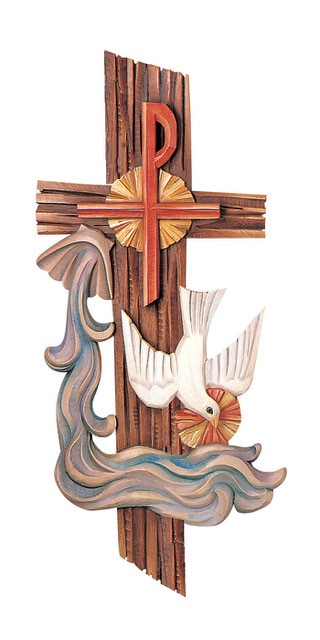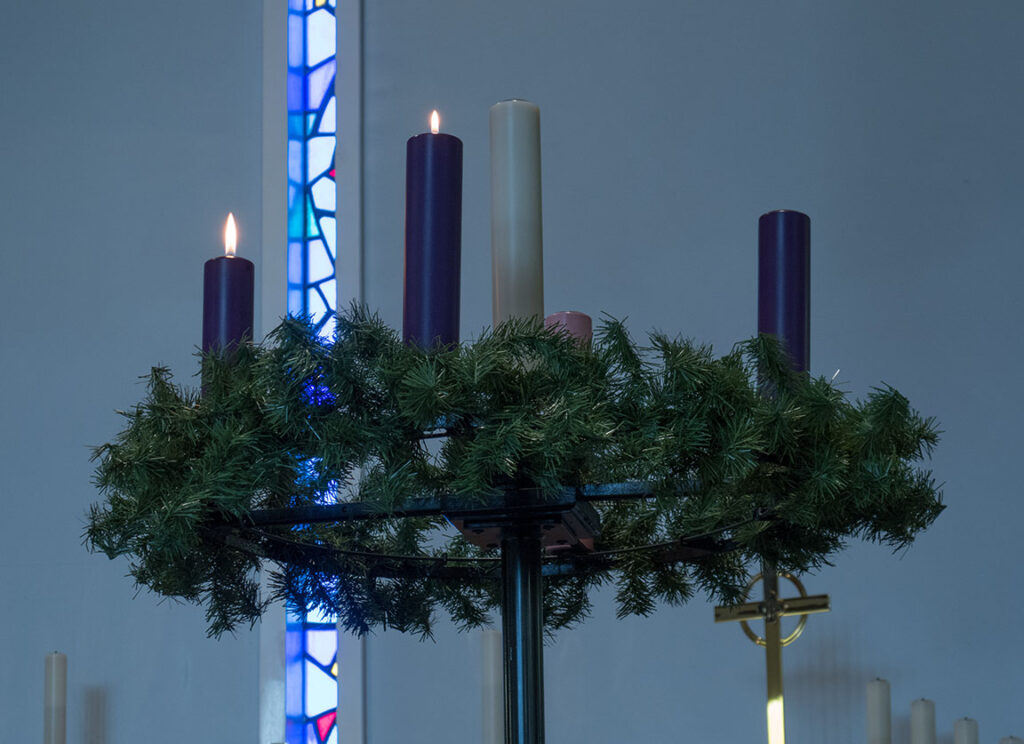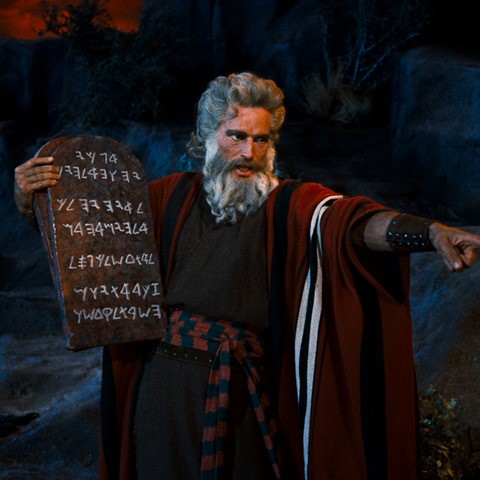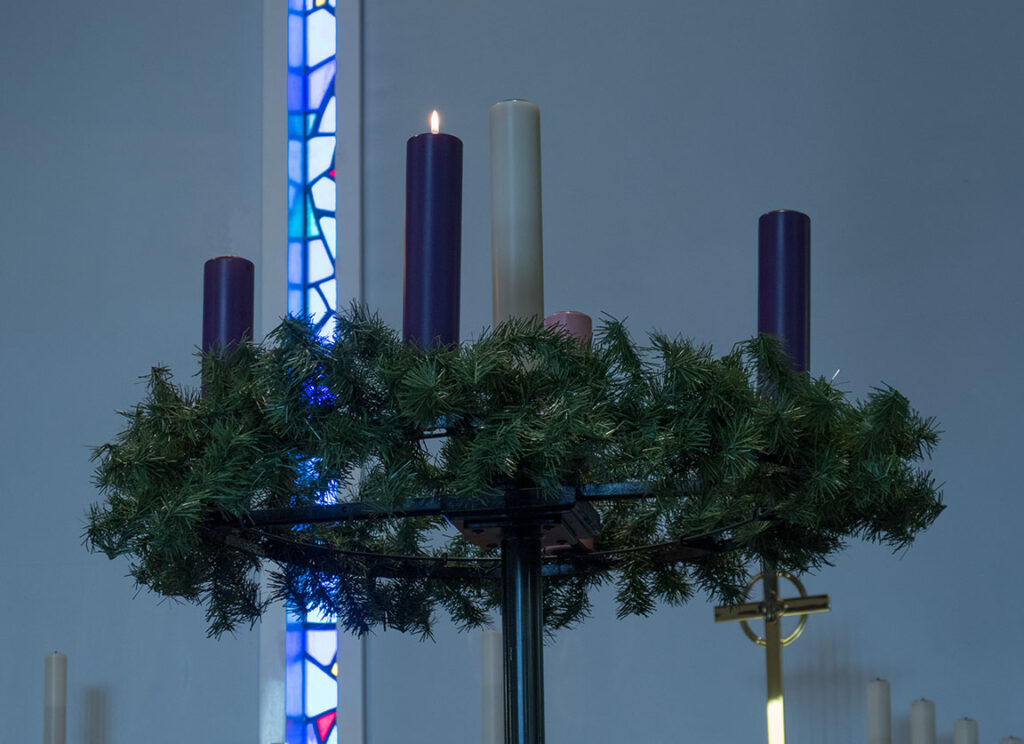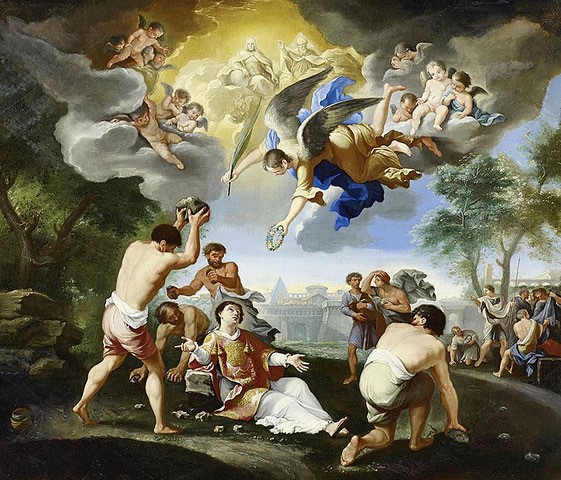
Sermon for the Festival of St. Stephen, Martyr: December 26, 2021 jj
Rev’d Mark B. Stirdivant, Good Shepherd Lutheran Church, Yucaipa, California
✝ sdg ✝
A lot can happen in a day! It looks like today, the day after Christmas, the Church is jolted out of a joyous celebration of the Savior’s birth into a morbid exhibition of death and the sad story of Stephen, the first follower of Jesus to be a martyr, that is, one who dies for the Christian faith. What is the Church thinking, to put this day in its calendar right after Christmas? Aren’t we already let down enough with trashed houses, gift returns and tight waistbands? Christmas goes on for twelve days, ending with the day before Epiphany—and then there will be reason for more celebration! Couldn’t the joy of Christmas last at least a little longer?
In fact, there are three days that talk of death, and they follow one right after another. Today (Sunday) marks the martyrdom of Stephen, tomorrow is (Monday was) set aside to remember the death of St. John the Apostle, who was exiled instead of killed, and (Tuesday the 28th commemorates/ yesterday commemorated) the slaughter of the Holy Innocents, that is, those baby boys under 2 years old in Bethlehem who were killed by the command of King Herod while he was searching to kill Jesus. There’s nothing very cheerful about these Christmas stories! Right away our attention is turned about-face from the manger, cattle, shepherds and angels proclaiming peace and life—to the cross, angry mobs, bitter opposition and suffering to the point of death.
Thus, our Church calendar reminds us in no uncertain terms—this baby in the manger came to die on the cross. Remember the three gifts the Wise Men brought? The last one was myrrh, an ointment used to preserve a dead body for burial. No one, when they sing the song “We Three Kings,” you wonder why they never include the verse on the gift of myrrh. Here it is:
“Myrrh is mine: its bitter perfume
breathes a life of gathering gloom:
sorrowing sighing, bleeding dying,
sealed in a stone-cold tomb.”
Oh, I guess I can tell why you never hear it. You can count on the fact that the best-selling baby shower present these days is not going to be embalming fluid! But as we well know, this is no ordinary baby, for Christ is true God, even in the flesh of a little child, a child who is destined to die.
Take note how Christ is portrayed today at the end of the Scripture reading from Acts. He is not this time a poor baby wrapped in swaddling clothes and lying in a manger. Instead, He is arrayed in the full glory of God standing at the right hand of the Father—standing ready to come to the aid of His devoted servant and receive Stephen into eternal life.
The opening of the heavens even had an effect on Stephen’s appearance. As he confessed the faith and God’s work through Israel’s history before the enemies of the Church, Stephen’s face reflected the glory of the Lord, which his eyes were allowed to see. As the Jewish leaders were looking at him, they saw that Stephen’s face looked like the face of an angel.
What a blessing it was for Stephen to behold this vision of heaven! Imagine the throne room of heaven appearing before your very eyes and your Savior standing there just for you! That would be the wish of any Christian who is faced with adversity. But wouldn’t it be even better if those enemies could also see the Lord in all His mighty glory? Maybe that would strike fear in their hearts and send them away running. Perhaps those rotten sinners would simply vaporize in the sight of the Most Holy God—wouldn’t that be great? Jesus will show those bad guys who’s the boss.
But it didn’t happen that way for Stephen. Instead of running away from him, the members of the Jewish council ran at him, covering their ears at what they called blasphemy that they heard coming from Stephen’s lips. He was then dragged out and pelted with stones. The face that looked so angelic just moments ago was probably bloodied beyond recognition.
Yet what is interesting is the way in which Luke, the author of Acts, describes the death of Saint Stephen. While the stones were already flying, Stephen prayed to the Lord Jesus whom he saw standing in glory. His words reflected the very prayer Jesus Himself prayed as He was nailed to the cross. He prayed in the words of Psalm 31: Into your hands I commit my spirit.
Then, falling to his knees, in the posture of humble worship, Stephen forgave those who trespassed against him, pleading for them to be spared from the wrath of God that burns against all sin. Finally, and perhaps the most puzzling of all, Stephen simply fell asleep! The lynch mob didn’t get the last word in the matter. True, by the outward appearance, Stephen’s death was quite violent. But really, this young man entered eternal life peacefully, ready to stand with his Lord in heavenly glory.
And so, Saint Stephen is the picture of true Christmas joy. For the joy of the Christian is surprisingly found in death. But what joy could there be in such a thing? It seems absolutely crazy, how could you even suggest any correlation between the two. From our experience, death brings only sorrow, pain, and the terrible reminder that we are poor, miserable sinners getting what we deserve. We know there are others who hate and insult us, we try to ignore it like it doesn’t have an effect on us, but we just cannot shake it. Nobody’s fooled, and our anger against all that hurt against us just sits there waiting its opportune time.
Yet one Man’s death reversed all that. The Child destined to die went to the cross, and there destroyed the sting of death forever. He suffered the death our sins placed on Him, and so those sins are no longer held against us. The hurt we suffered has been removed so that it hurt Jesus instead. As strange as it may sound to those who hear it for the first time, the death of Jesus Christ is for us a death that gives life: a life that was proclaimed in all its splendor on the third day, when Jesus rose from the dead.
On account of this life-giving death, heaven is opened to us just like it was for Stephen. This happened first at baptism, when we were washed with water connected with the promise found in the Lord’s Word. That promise is: whoever believes and is baptized will be saved, and that promise is sealed by the name of the Father, Son and Holy Spirit, the Holy Trinity into which we are baptized.
Now when you were baptized, there probably wasn’t a sudden vision of heaven and the glory of the Triune God didn’t visibly fill the building. More likely than not, nobody there beheld the angels that proclaimed this new birth of water and the Spirit just as joyfully as they hailed the birth of Jesus to those shepherds. Though it was concealed in plain water and words, to be seen only in true faith, heaven really was opened for you that day as the gates of hell were closed. Our Lord Jesus stood to receive you on the day you were born again at the baptismal font. But even then, a death occurred. It was the death of your sinful nature; it was nailed to the cross along with Jesus so that you may arise as a new creation. How joyful is that death for you!
What’s even better is that this doesn’t happen just once. The risen Savior sitting at the right hand of God the Father stands ready to greet you His baptized children whenever you gather in His name. Though you don’t see it, heaven is opened even here in this humble place. Though it is not audible in your ears, the angels do sing, because forgiven sinners are allowed to come before the presence of the Almighty God, saying Lord, have mercy! Because of your baptism, you are privileged to join this heavenly worship, lifting up your hearts and voices in joyful and reverent praise to our God.
For the heaven that Stephen saw with his eyes, is the very same heaven you hear each week with your ears. Christ is here among you today, and you worship Him who was laid in the manger at birth, hung on the cross to die, and raised from the tomb to live forever—all in order to forgive your sins. He is here now in His glory, not to make your problems flee away and disappear, but to give you strength and wisdom through the Holy Spirit to stand up under any temptation.
A real change takes place right here. When Stephen beheld the face of God as he was confessing the true faith, his own face changed appearance. And so, your appearance before God and the world changes as well. As you look away from your own self and fix your eyes on Jesus, He automatically makes you more like Him. As He speaks His words of life to you and proclaims the shedding of His blood for your sins, He plants within you a new nature, replacing the sinful nature of death that is daily drowned in remembrance of your baptism. Your faces, once bloodied and disfigured with sin, now shine radiantly as you confess the name of your risen Savior.
Though heaven comes to us in the Word of God and in the holy Sacraments, we don’t have to look far to see that we are still in a sinful world. Our lives might not be taken from us as is happening to Christians in many countries even today. Still, in every place and every age the Gospel will have its enemies. Our enemies may be different from those Stephen faced, but by virtue of our new life in the death of Christ, our prayer for them is just the same as his: Lord, do not hold this sin against them.
We can be confident as we stand in the throne room of the Almighty God, because for us, heaven is open. The world may reject us and even throw stones of one sort or another, but they cannot stand up against Christ the wisdom of God and the Holy Spirit who dwells within us. Take joy these twelve days of Christmas from the presence of your Savior Jesus, who is standing here today, ready to open heaven for you. Thanks to His life-giving death for us, our own death will be like falling asleep, for when we wake, we will see heaven open with our own eyes, and take part in the true Christmas joy that has no end.
In the Name of the Father and of the ✝ Son and of the Holy Spirit.

